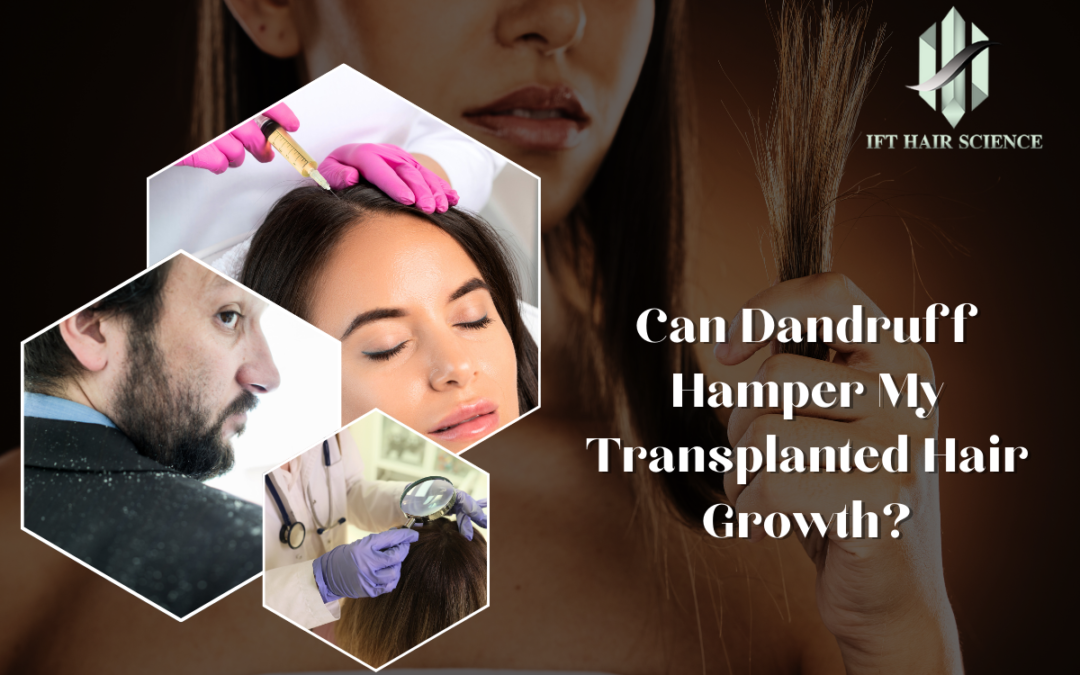For those suffering from hair loss, hair transplantation is a highly sought-after option that offers a permanent, natural cure. Although the process is beneficial in and of itself, dandruff is one of the variables that can affect its outcome. The widespread scalp ailment known as dandruff is typified by the exfoliation of dead skin cells, frequently accompanied by irritation and itching. For those undergoing or considering hair transplantation, it is important to know whether dandruff can interfere with the growth of newly transplanted hair.
The Fundamentals of Hair Transplants:
Prior to discussing the possible effects of dandruff, it is important to understand the basics of hair transplantation. Follicular Unit Extraction (FUE) and Follicular Unit Transplantation (FUT) are the two main methods. In both procedures, the recipient area—where hair is thinning or missing—receives hair follicles transplanted from the donor area, which is often the back of the head. The grafts must become integrated into the existing hair and create a blood supply for the transplant to be successful.
The Impact of Dandruff on the Scalp:
The yeast-like fungus Malassezia can grow out of control and produce dandruff by causing the skin to become inflamed and shed its cells. Dandruff by itself might not affect transplanted hair, but the inflammation and irritation it causes can make the environment less conducive to healthy hair development. Dandruff could impede the post-transplantation healing process and have an impact on the survival and development of the transplanted hair follicles.
And What Part It Plays:
Dandruff that doesn’t go away can make scalp inflammation worse. While inflammation is a normal reaction to trauma, persistent inflammation can slow down the healing process. The scalp goes through a healing phase after a hair transplant, during which the transplanted follicles settle into their new surroundings. This critical stage may be hampered if dandruff-induced inflammation is present, which may impact the transplanted follicles’ ability to receive blood and nutrients.
Possibility of Infection:
Dandruff-induced scalp scratches can lead to tiny cuts on the scalp that are more prone to infection. Hair follicles that have been transplanted may suffer from infections, which can impair their growth and the transplant’s overall success. Preserving a scalp devoid of infections and severe inflammation is crucial for achieving the best possible results after transplantation.
Treatment and Preventive Actions:
People should give their scalp health priority both before and after the treatment to lessen the possible negative effects of dandruff on the growth of newly transplanted hair. This includes washing your hair frequently, maintaining proper hygiene, and adhering to the surgeon’s post-transplant care instructions. To maintain a healthy scalp environment for the best possible hair growth, if dandruff continues, consulting a doctor is essential for recommendations on appropriate treatments, such as topical remedies or medicated shampoos.
In summary:
Although dandruff by itself might not directly prevent transplanted hair from growing, the inflammation, irritation, and risk of infection it carries can make the process less successful. To provide the best conditions possible for transplanted hair follicles to grow, it is crucial to prioritize scalp health through appropriate care and to seek medical attention as needed. Ultimately, obtaining the intended long-term outcomes requires a comprehensive approach to post-transplantation care, which includes treating dandruff.






